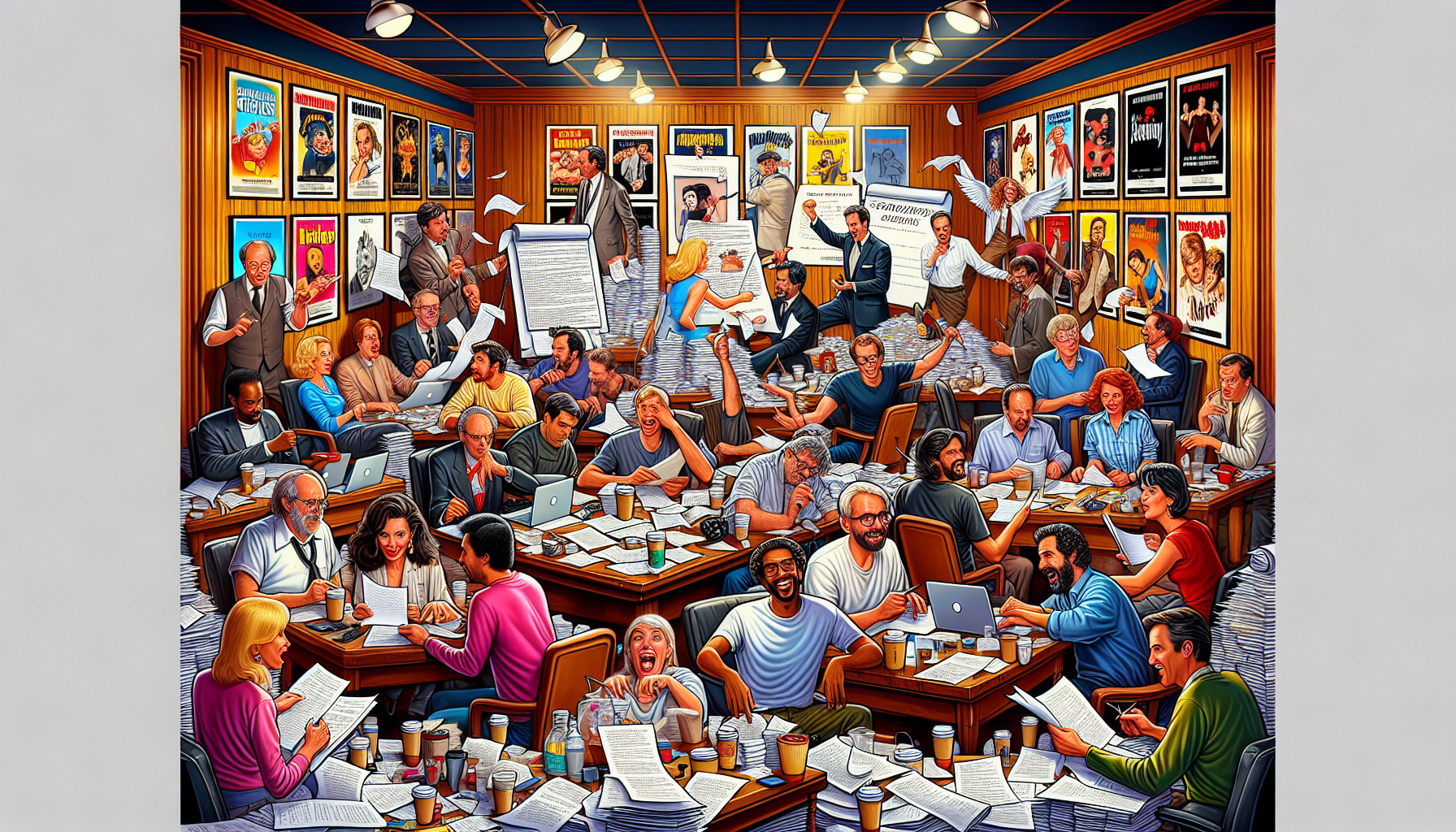
Laughter Prescription: Unlock Comedy Gold in Your Screenplay
So, you want to write a comedy screenplay that tickles the funny bone so much it practically induces laughter-induced hiccups? Well, you’re in the right place. Comedy is no laughing matter—well, actually it totally is (but let’s keep that between us). Mastering the art of comedy movie tropes could be your golden ticket to the big leagues of chuckles and snorts. Ready to dive into the laugh tank? Let’s splash right in!
The Almighty Awkward Situation
Nothing says comedy like putting your characters in supremely awkward situations: think Ben Stiller encountering his girlfriend’s parents in ‘Meet the Parents’ or the myriad of cringe-worthy moments in ‘The Office’. Why do these scenes work? They tap into our deepest fear of public embarrassment BUT make someone else endure it, so it’s safe to laugh. When deploying this trope, push boundaries—put that character in situations so awkward, even the audience squirms. They’ll laugh, because it’s not happening to them!
The Oddball Character
Every memorable comedy has at least one character that is wonderfully weird. The oddball can say what no one else will, or approach situations in a way that no sane person would. Think Michael Scott from ‘The Office’ or virtually any character played by Will Ferrell. These characters can make audiences howl with laughter with just a facial expression or a bizarre monologue. When crafting your oddball, don’t just make them strange—give them heart or a reason their oddities are endearing.
The Misunderstanding
Ah, the classic comedy of errors trope. Misunderstandings can lead to the chaos narratives that comedies thrive on. Think of the telephone game gone wrong in ‘Chinese Whispers,’ or mistaken identities like in ‘Some Like It Hot.’ Leveraging this trope involves carefully constructed script work, ensuring that the misunderstandings are plausible yet unpredictable. The key is to build toward a hilariously catastrophic revelation that brings everything crashing down in the most comically satisfying way possible.
Physical Comedy: The Slap of Reality
Physical comedy, the slapstick sibling of verbal jabs, involves a bit of pratfalling, tripping, and all-round chaos. Before you tie your protagonist’s shoelaces together, remember that timing is everything. The pratfall isn’t just about someone falling; it’s about when they fall. It’s that unexpected trip right when the pompous character is trying to make a dignified exit. Mastery of this requires understanding pacing and building tension before letting the banana peel do its work.
The Running Gag: Laughter on Loop
A running gag is like that one joke at the family reunion that never gets old. It could be a catchphrase, a peculiar habit, or an unusual character trait that recurs throughout the movie. For instance, consider ‘The Simpsons’ and its ever-elusive couch gag. Use this trope wisely; keep it fresh each time so the audience eagerly anticipates its return, and gets rewarded with a fresh twist every time.
Satire: The Comedy Mirror
What’s better than making people laugh? Making people laugh while subtly laying bare the truth about society, politics, or the entertainment industry itself. Satire is laughing with a purpose, poking fun at our foibles and follies. To wield satire effectively in your screenplay, you should possess a keen insight into whatever you’re skewering. Keep it sharp but playful. After all, a spoonful of comedy helps the medicine go down!
Conclusion
Injecting these tried and true comedy movie tropes into your screenplay is sure to elevate the humor and engage your audience. While tropes are fantastic tools, remember the key ingredient in comedy is originality. Mix, match, and modify these tropes to fit your unique voice, and above all, keep ‘em laughing till the credits roll!






